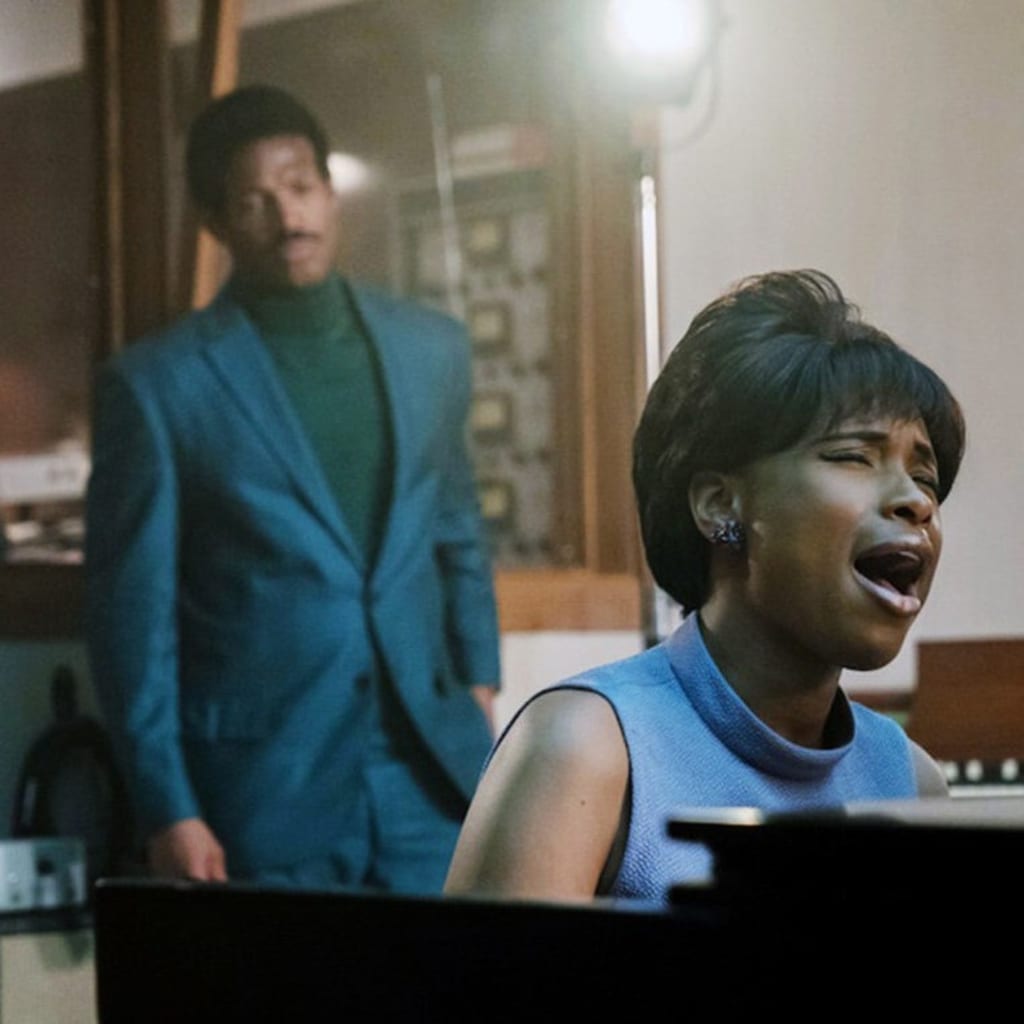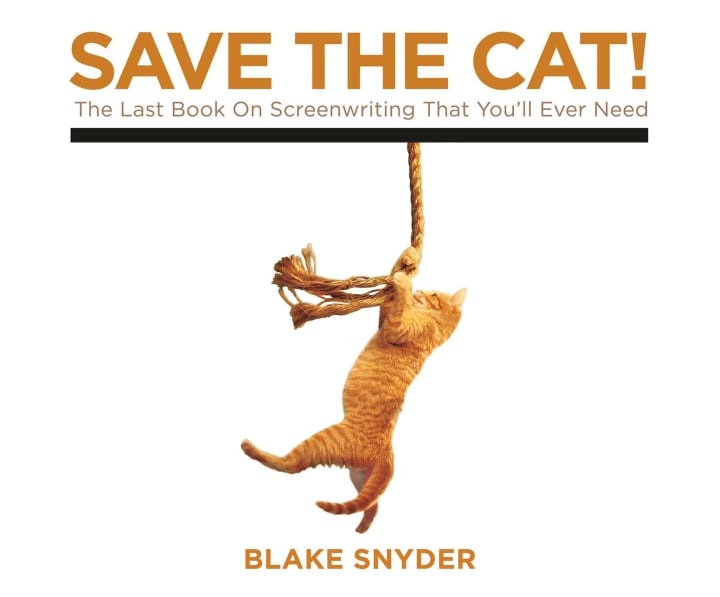Strict Adherence to Screenplay Mechanics Stifles Aretha's Life Story in 'Respect'
Aretha Franklin's rich and vital life reduced to a mechanical screenplay in 'Respect.'

It's strange to say this when we are talking about a movie about a real life individual but, since I know some people are sensitive to this, SPOILERS for the Aretha Franklin biopic Respect will be part of this article. In this exercise we are going to break down the entirety of the new Aretha Franklin biopic Respect using screenwriting guru Blake Snyder's Beat Sheet. The late Mr. Snyder was a screenwriter by trade and a teacher of screenwriting as well. His book Save the Cat is a terrific resource for screenwriters who are learning the craft for the first time.
That said, at a certain point, using a beat sheet as basic as Save the Cat can be limiting and reduce the beats of your story to such a basic and predictable level that it renders story you are telling inert and lifeless. In the case of Respect, the strict adherence to the most basic element of screenplay structure robs Aretha Franklin of her life by reducing it to the basics of narrative. Important aspects of Franklin's life are turned into inciting incidents for a mechanical form of storytelling that loses sight of what made Aretha Franklin worthy of having a movie made about her life.

In Blake Snyder's Save The Cat the elements of a screenplay are broken down into 15 component parts
1. Opening Image
2. Theme Stated
3. Set-Up
4. Catalyst
5. Debate
6. Break into Two
7. B Story
8. Fun and Games
9. Midpoint
10. Bad Guys Close In
11. All is Lost
12. Dark Night of the Soul
13. Break into Three
14. Finale
15. Final Image
In this article we will take you through Respect via these 15 steps and show the strict adherence to the Beat Sheet that renders this story emotionally inert. This is not meant to condemn the Beat Sheet at all. It's a great way to learn about screenwriting and many films can benefit from a strict adherence to structure. Sadly, the strict adherence to structure in Respect is the wrong approach. It makes Aretha Franklin's life too ordinary, important moments in Aretha's real life feel like the beats of a screenplay rather than defining moments in a well known life.
1. Opening Image - A tracking shot through a party at a stately home in Detroit follows a man we will come to know as Aretha Franklin's father, Reverend C.L Franklin. We follow C.L to his daughter's bedroom where he kindly beckons Aretha out of bed. He's bringing her downstairs to sing for the assembled guests. We get a sense from dialogue that this is a regular occurrence in the Franklin household. The opening images of Respect establish Aretha's remarkable, innate, talent and how others admire her.
2. Theme Stated - Following the party scene, Aretha and her siblings are sent on a visit to their mother Barbara Franklin, played beautifully by Broadway legend Audra McDonald. While her siblings play outside, Aretha stays inside to listen to her mother sing. In this moment Barbara tells her daughter that music will save her life and that she should only ever sing when SHE wants to sing and not because anyone made her do it.
3. Set-Up - The set-up in Respect has multiple prongs. We watch Reverend Franklin deliver a powerhouse sermon and establish the Franklin family's deep and abiding faith. On a separate track, at yet another party, Aretha is in bed when a man enters her bedroom. He's a friend of the family and appears friendly but his intentions slowly and dreadfully become clear. The door to the bedroom is open and when this adult man walks to the door, instead of leaving, he closes the door with he and Aretha inside. What happened is heavily implied and eventually revealed to have been a sexual assault.
4. Catalyst - The sexual assault is something that came to light when she had a baby very young and a second child not long after. The horrific implications are left mostly offscreen. The catalyst for the next part of Aretha's life is the death of her mother, Barbara. Barbara's death starts an emotional spiral that carries deep into Aretha's adult life.
\5. Debate - Transitioning to an adult Aretha via a time lapse of her performances at her father's church, we arrive at Aretha in her early 20s preparing to become a star. A number of people have ideas for Aretha's career but her father has the final word. At a party Reverend Franklin announces that Aretha is moving to New York City to record Jazz standards for Columbia Records. This is despite musician friends in Detroit suggesting that Aretha would be a star on the rising Motown label.
6. Break Into Two - Aretha agrees to go to New York and sets out on her big City journey by accepting her contract and beginning to record a series of Jazz standards albums. They aren't creatively fulfilling and they aren't hit records, but Aretha has started a music career and it's the start of an entirely new life for her, away from her family and her domineering father.
7. B-Story - As Blake Snyder tells it, the B-Story is where the love interest is fully introduced. In the case of Respect, the B-Story is Aretha's relationship with and eventual marriage to Ted White, played by Marlon Wayans. The rocky romance between the sheepish Aretha and the volatile Ted provides a point where Aretha fully separates from her father's influence and becomes her own woman, even as she moves from one domineering male figure to another.
8. Fun and Games - During this section, though she struggles with Ted's violent insecurity, he does help her to leave Columbia Records and begin to pursue her own music. This leads Aretha to producer Jerry Wexler, played by Marc Maron. Wexler takes Aretha's career in a new direction, Soul music. In this section we watch Aretha travel to Muscle Shoals where she meets the band that will help create the sound that breaks Aretha into the mainstream as a massive star. Here is also where we get to see Aretha flexing her creative muscles as we watch her write the song R.E.S.P.E.C.T. We see Aretha on stage and commanding a crowd and how her dynamic stage presence developed.
9. Midpoint - The Midpoint of Respect finds Aretha Franklin achieving her dreams but at the cost of her marriage. Ted's insecurities get the best of him as he watches Aretha come into her own. As she becomes a big star he feels diminished and reacts with violence. Aretha gets what she wanted in terms of making hit records and touring but Ted's volatile behavior has started them on the road to a divorce and set Aretha back towards an addiction to alcohol that had plagued her life in her teen years, in the wake of her sexual abuse.
10. Bad Guys Close In - In this section, the bad guys closing in are Ted, who is receding but slowly, and the rise of what Aretha and her family call her 'Demon.' The demon is her alcoholism and in this section we see Aretha go on stage so drunk that she ends up falling off of the stage.
11. All is Lost - As Aretha's alcoholism grows she begins to lash out at what remains of her support system. Aretha throws her new husband out of their house, she misses numerous concert appearances and worries loudly that if she stops touring and recording that people will forget her. She lashes out at her sisters, accusing them of leeching off her career and being jealous of her success.
12. Dark Night of the Soul - This portion of the Beat Sheet is taken rather literally by director Liesl Tommy who has Aretha undergo a Dark Night of the Soul. Alone at home surrounded by bottles of liquor, Aretha begins to breakdown emotionally. She sobs heavily and prays to God for salvation. Then, a vision of Aretha's mother, Barbara appears. Wordlessly, Barbara approaches Aretha and holds her while she sobs. Falling asleep on the floor Aretha slowly realizes that she needs to stop drinking and get her life together.
13. Break into Three - In this section Aretha rediscovers her faith in God. She leaves the road and recording schedule behind and travels to Los Angeles where she reconnects with Reverend James Cleveland, played wonderfully by Titus Burgess, who helps Aretha find her gospel. It's here where Aretha decides that her next record will be a live gospel album recorded in Reverend Cleveland's church.
14. Finale - After convincing Jerry Wexler that this is the only way forward for her life and career, Aretha goes to Los Angeles to record her gospel record. It's a live recording in front of a full congregation. Before the show, Aretha reconciles with her father who decided to attend the recording at the last minute. With his loving support, Aretha takes the stage and delivers an iconic performance of Amazing Grace, a statement about her life, work and the journey of her life.
15. Final Image - The final image of Respect is a series of title cards listing Aretha's accomplishments prior to her passing in 2018. One of the title cards informs us that Aretha Franklin Amazing Grace became the best selling record of Aretha's career.
Now, looking at that strictly from this perspective without the actual movie, there is nothing wrong with this structure. It's a solid template, easy to follow and understand. As executed however, on screen, this plays like Aretha's life was a screenplay. Every incident is rendered in such a perfunctory fashion that her life feels more like the mechanics of a screenplay than an actual life lived. Respect, as a movie, is well crafted, it looks good and sounds good and Jennifer Hudson sings beautifully. Sadly, the restrictive, perfunctory quality of the structure of Respect strangles the life and humanity out of Aretha's life.
This is sadly becoming a typical state for Hollywood biopics. Life rendered as the beats of a screenplay. Lives reduced to defining traumas and occasional triumphs. It's an effective strategy to appeal to a mass audience eager to not be challenged or have to confront an actual life. It's terrible for people who want to see the life of Aretha Franklin treated as something more than a conveyor belt of perfunctory obstacles.
Respect is in theaters around the world as of August 13th, 2021.
About the Creator
Sean Patrick
Hello, my name is Sean Patrick He/Him, and I am a film critic and podcast host for the I Hate Critics Movie Review Podcast I am a voting member of the Critics Choice Association, the group behind the annual Critics Choice Awards.






Comments
There are no comments for this story
Be the first to respond and start the conversation.